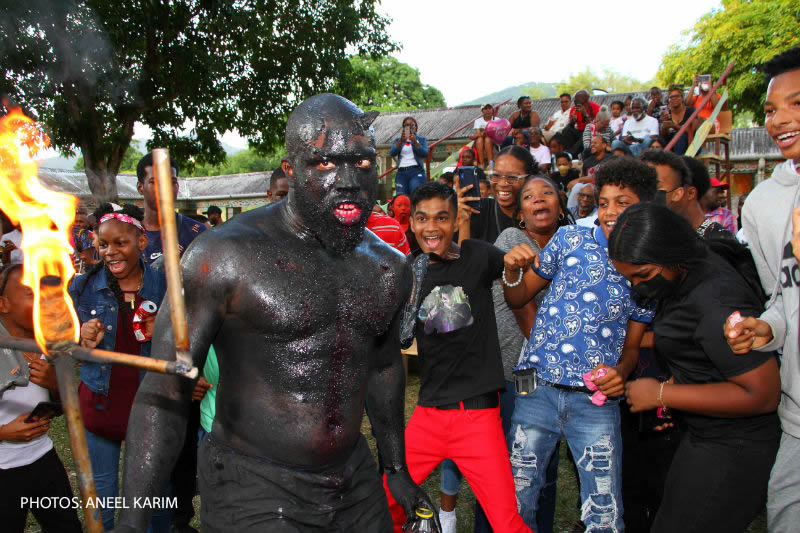From outsourced mas making to competition from other markets, experts ask how T&T’s Carnival can survive and thrive in a time of change
When Roman Catholic priest Father Clifford Hendey played mas in 1966 with Angostura Starlift in Woodbrook, he stirred controversy and passionate discussions about what Carnival represented and who was allowed to participate.
During a Sir Arthur Lewis Institute of Social and Economic Studies (SALISES) virtual webinar on February 24 on the evolution and devolution of Trinidad and Tobago’s Carnival, Sociology Professor Emeritus Anton Allahar said Hendey’s decision showed the growing acceptance of Carnival in non-traditional spaces.
"The year after that (1967), Calypsonian Mighty Cypher won the Calypso King Contest when he sang 'If the priest could play, who is we?'" he said.
As Carnival has evolved from a socially unacceptable festival to an economic product, there have always been passionate discussions about the festival’s direction.

But Allahar said it is the responsibility of the sector to use those discussions to guide the festival’s product. People, he said, must also reflect on the true meaning of Carnival.
“Carnival has evolved and become a huge profit making enterprise. But Carnival remains the stage upon which the complexities and contradictions of the nation are articulated,” he told the virtual audience.
“Carnival is a tradition which serves to encapsulate the fluid, evolving complexities – and multiple political, social and economic contexts – that define not only the nation, but its people.”
Acting SALISES director Dr Godfrey St Bernard said he has witnessed Carnival’s transformation.
From changes in the costumes of mas bands, to changes in the way steelbands operate for Panorama, Dr St Bernard stressed the importance of those involved in Carnival reflecting on where the festival is heading given its cultural, economic, and historical value.
However, economist and UWI lecturer Dr Marlene Attzs said Carnival’s growth can be a positive development. It can provide opportunities for economic diversification, generate foreign exchange, and boost the creative sector.
She warned, however, that growth must be properly managed, pointing out that some aspects – like making costumes in factories abroad as opposed to locally – are not sustainable.
Dr Attzs said, “Prof Allahar made mention of our pretty mas (costumes) being imported from as far as China, which has become the reality. Many years, I was part of a neighbourhood community which actually sat, designed and made children’s costumes.”
Calling for a better measurement of the return on investments made on Carnival, she dismissed the accepted practice of anecdotal financial analysis for Carnival post-mortems.
“While anecdotes are sometimes useful, controversial, and sometimes make for good bacchanal, I don’t think they help us advance Carnival as the kind of sustainable sector that it can be.”
Carnival Studies lecturer Dr Jo-anne Tull said any long-term planning for Carnival must create unique branding for the festival. She said it is no longer profitable for Carnival's sole identity to be the fact that it was made in T&T.

Jamaica’s Carnival, Dr Tull explained, is an example of how a carnival can become its own brand when entwined in an island’s overall tourism strategy.
“When you look across the (Caribbean) region, much of the policy interventions around festival branding have tended to tie branding with marketing the destination and tourism. “That is a little ironic in the context of Trinidad and Tobago, which has never fully and predominantly never pursued a tourism strategy,” she said.
With the continued commodification of T&T’s Carnival, its brand has only continued to be diluted, which is unsustainable.
If Carnival is to develop sustainably, Tull said, it cannot be looked at in a vacuum. Instead, the festival must be viewed through a broader lens as something that is unique in its own right among the world’s other carnivals.
She warned, “There are innovations occurring – and new-styled carnivals – which are part of the carnival spawning, and they have become competitors to T&T's carnival.
“They are pursuing the same market which you are pursuing, and you have to think about the Carnival tourists chasing carnivals and looking for the best experience.”